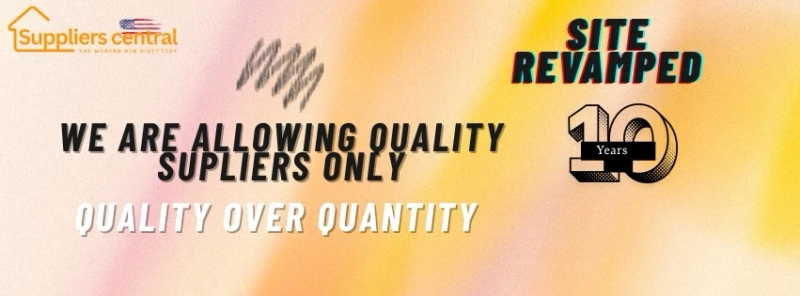When it comes to sourcing products in bulk, finding trustworthy clothing suppliers is crucial for your business's success. Whether you run a boutique, an online store, or a retail chain, partnering with the right suppliers ensures product quality, timely delivery, and smooth operations. Vetting suppliers before placing large orders helps you avoid costly mistakes, delays, and substandard products that could damage your reputation. Here’s a practical guide to vetting clothing suppliers before committing to bulk purchases.
Checking Supplier Credentials
The first step in evaluating any clothing supplier is to verify their credentials. Legitimate suppliers often provide documentation that proves their business is legally registered and compliant with industry standards. This includes business licenses, tax identification numbers, and membership in professional associations or trade organizations.
A credible supplier should also have a verifiable track record in the industry. You can check their history by looking at reviews, client testimonials, or case studies. Established suppliers usually have a portfolio of clients and projects they have serviced. Additionally, checking their physical address and operational locations can provide reassurance about their authenticity and reliability.
Requesting Product Samples
Once you have shortlisted potential clothing suppliers, the next step is to request product samples. Samples allow you to evaluate the quality of materials, stitching, design accuracy, and overall workmanship before placing a large order.
Pay close attention to fabric feel, color consistency, sizing, and finishing details. Ensure that the sample matches the specifications you discussed with the supplier. If possible, test the sample under real-world conditions, such as washing, stretching, or wearing it for a day. This process can reveal potential quality issues early, saving you from making bulk purchases of substandard products.
Verifying Factory or Production Standards
Understanding how a supplier produces their clothing is essential for maintaining quality and ethical standards. Ask about their production processes, factory conditions, and quality control measures.
Reputable clothing suppliers will be transparent about their manufacturing practices and provide details about certifications such as ISO, SA8000, or other relevant industry standards. You can also request a virtual or in-person factory tour if feasible. Checking the supplier’s production capacity ensures they can handle your bulk orders without compromising quality or delivery timelines.
Moreover, verifying that the supplier adheres to ethical labor practices is increasingly important to modern consumers. Ensuring fair working conditions, appropriate wages, and safety measures protects your brand’s reputation and aligns with global sustainability trends.
Understanding Return and Refund Policies
Before placing a bulk order, it’s critical to clarify the supplier’s return and refund policies. Even with thorough vetting, unforeseen issues such as defective products, incorrect quantities, or shipping damage can occur.
Ask suppliers about their procedures for handling defective items, replacements, and refunds. Understand the timeline for claims and whether they provide coverage for shipping costs. Clear and fair return policies demonstrate a supplier’s commitment to customer satisfaction and reduce the financial risk associated with bulk purchases.
Keep written records of all agreements regarding returns and refunds. This documentation ensures accountability and provides a reference point if disputes arise after the order has been delivered.
Evaluating Customer Support Responsiveness
Reliable communication is a hallmark of a trustworthy clothing supplier. Efficient customer support ensures that queries are addressed promptly, issues are resolved quickly, and you have a direct line of contact during the ordering process.
Test the supplier’s responsiveness before committing to a bulk order. Send emails, make calls, or use live chat if available, and note how quickly and effectively they respond. A supplier who prioritizes communication demonstrates professionalism and dedication to client satisfaction.
Additionally, strong customer support can assist you with order tracking, production updates, and after-sales service. This ongoing relationship is crucial for long-term partnerships and helps you navigate potential challenges with bulk orders smoothly.
Conclusion
Vetting clothing suppliers thoroughly before placing bulk orders significantly reduces the risks associated with large-scale purchasing. Checking credentials, requesting product samples, verifying production standards, understanding return policies, and evaluating customer support are key steps to making informed decisions.
By taking these precautions, you not only protect your business from financial loss but also ensure consistent product quality, timely deliveries, and a reliable supply chain. Establishing relationships with vetted suppliers fosters trust and lays the foundation for long-term success in the wholesale and retail markets.
Partnering with the right clothing suppliers is an investment in your brand’s reputation and customer satisfaction. Proper vetting ensures that your bulk purchases meet quality expectations, comply with ethical standards, and contribute positively to your business growth.



